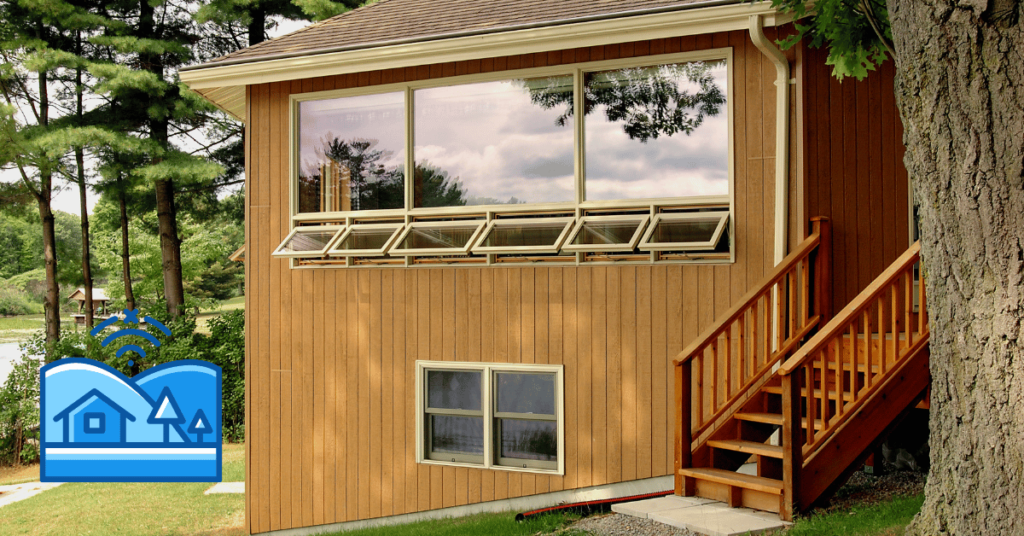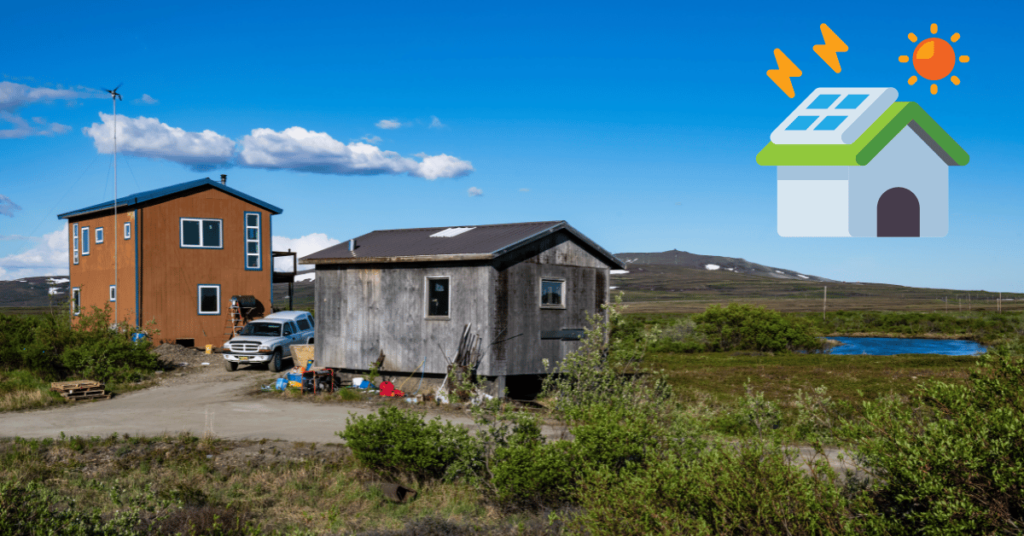For many retirees, the idea of living off the grid offers a unique and sustainable way to enjoy retirement. Off-the-grid living means becoming independent of public utilities like electricity, water, and gas, often relying on renewable energy sources such as solar power, well water, and homegrown food. It can reduce living costs, promote environmental sustainability, and offer a simpler, more self-sufficient lifestyle.
This article explores the benefits, challenges, and options for retirees considering off-the-grid living as a sustainable retirement option.
What Does “Off the Grid” Mean?
Living off the grid refers to a lifestyle where individuals generate their own power, grow food, and manage water resources independently. It’s becoming increasingly popular among retirees who are looking for a more minimalist lifestyle, wish to reduce their environmental impact, or are simply seeking more control over their daily lives.
Key Components of Off-the-Grid Living:
- Energy Independence: Solar panels, wind turbines, and backup generators are commonly used to provide electricity.
- Water Sources: Private wells, rainwater harvesting systems, and natural water sources like lakes or rivers can be utilized.
- Waste Management: Composting toilets and greywater systems help manage waste in an eco-friendly way.
- Food Production: Home gardens, greenhouses, and livestock farming can ensure a steady food supply.
Benefits of Off-the-Grid Retirement

1. Reduced Living Costs
One of the primary reasons retirees choose to live off the grid is to lower their living costs. By generating their own power, managing water supply, and growing food, retirees can significantly reduce utility and grocery bills.
- No Monthly Utility Bills: You eliminate costs associated with electricity, water, and gas.
- Sustainable Living: Growing your own food and living sustainably can also lower grocery costs.
2. Environmental Sustainability
Living off the grid allows retirees to reduce their carbon footprint and live more harmoniously with nature.
- Renewable Energy: Using solar or wind energy is environmentally friendly and reduces dependence on fossil fuels.
- Minimal Waste: Off-the-grid households often focus on reducing waste through composting, recycling, and sustainable living practices.
3. Independence and Self-Sufficiency
Off-the-grid living promotes self-reliance, as retirees are responsible for their energy, water, and food.
- Control Over Resources: You have full control over your utilities and can customize your lifestyle to suit your needs.
- Increased Freedom: Without reliance on public services, retirees can live in remote or rural areas, away from the hustle and bustle of city life.
4. Peace and Solitude
Many retirees seek out the quiet and solitude that off-the-grid living provides. Remote, rural locations offer peace, privacy, and a closer connection to nature.
Challenges of Off-the-Grid Living
While there are numerous benefits to off-the-grid living, there are also challenges that retirees should consider before making the transition.
1. Initial Setup Costs
Though living off the grid can save money in the long run, the upfront costs for installing renewable energy systems, water management solutions, and food production systems can be high.
- Solar Panels and Wind Turbines: Installing solar panels or wind turbines requires a significant initial investment, though they typically pay for themselves over time.
- Water Systems: Drilling a well or setting up a rainwater harvesting system can also be expensive.
- Building and Zoning Permits: Depending on the location, obtaining permits for off-the-grid construction can add extra costs.
2. Maintenance and Repairs
Off-the-grid systems require regular maintenance and repairs, which can be challenging for retirees who may not have the technical skills needed to manage these systems.
- Energy Systems: Solar panels, batteries, and generators need regular upkeep to ensure reliable energy.
- Water Systems: Wells and rainwater systems also need maintenance to keep water flowing cleanly and efficiently.
3. Isolation
While solitude can be appealing, living in remote areas can lead to feelings of isolation, especially if far from friends, family, and healthcare services.
- Limited Access to Services: Off-the-grid homes are often far from hospitals, grocery stores, and other essential services, which can be a challenge for retirees with health needs.
- Social Isolation: The lack of nearby neighbors and community can be difficult for retirees who crave social interaction.
4. Learning Curve
Adjusting to off-the-grid living requires a steep learning curve, as retirees will need to learn how to manage and maintain their new lifestyle independently.
- Technical Skills: Understanding how to install and maintain energy systems, manage waste, and grow food can be overwhelming for beginners.
- Self-Sufficiency: Retirees need to be comfortable with DIY repairs and troubleshooting problems.
Best Places for Off-the-Grid Retirement in the U.S.

Choosing the right location is crucial for successful off-the-grid living. Certain states are more favorable due to their regulations, climate, and access to natural resources.
1. Arizona
Arizona’s sunny climate makes it an ideal state for solar energy, and its affordable land prices attract retirees seeking an off-the-grid lifestyle. However, water can be scarce in some regions, requiring careful planning.
2. Colorado
With its access to renewable energy sources and vast open spaces, Colorado is a popular state for off-the-grid living. The state’s varied climate offers opportunities for both solar and wind energy.
3. Vermont
Vermont’s focus on sustainability and renewable energy makes it a great option for off-the-grid living. Its rural landscapes are ideal for retirees seeking solitude and a connection to nature.
4. Oregon
Oregon’s mild climate, access to natural resources, and progressive environmental laws make it an excellent location for off-the-grid retirees. The state also offers affordable land in many rural areas.
How to Start Living Off the Grid in Retirement
1. Research Your Location
Before making any decisions, research the best locations for off-the-grid living that match your lifestyle, budget, and climate preferences. Look for areas with good access to renewable energy sources like sun or wind, as well as water resources.
2. Create a Detailed Plan
Off-the-grid living requires meticulous planning. Ensure you have a solid plan for generating energy, managing water, growing food, and maintaining waste systems.
- Energy Plan: Decide whether you’ll rely on solar panels, wind turbines, or a combination of both.
- Water Management: Determine how you’ll access clean water through wells, rainwater collection, or natural sources.
- Food Production: Plan out your home garden, greenhouse, or livestock to ensure a steady supply of food.
3. Consider Healthcare Needs
If you plan to live in a remote area, consider how you’ll manage healthcare. Some retirees choose to live off the grid but still stay within reasonable proximity to a town or city with healthcare facilities.
4. Budget for Initial Costs
Make sure you budget for the upfront costs of transitioning to off-the-grid living, including land purchases, energy systems, and building expenses.
Conclusion
Living off the grid offers retirees a unique opportunity to enjoy a self-sufficient, sustainable, and often peaceful retirement. While it comes with challenges, such as initial setup costs and a steep learning curve, the rewards of reduced living expenses, environmental sustainability, and greater independence can make it an appealing option. By carefully planning your off-the-grid retirement, you can create a fulfilling lifestyle that aligns with your values and financial goals.
If you have any further questions feel free to comment down below or contact retiresmart for any help!
FAQs
Is living off the grid more affordable than traditional retirement?
While the initial setup costs for off-the-grid living can be high, the long-term savings from reduced utility bills and living expenses can make it more affordable in the long run.
What are the biggest challenges of living off the grid in retirement?
The biggest challenges include the high upfront costs, maintenance of energy and water systems, and the potential for isolation in remote areas.
Do I need technical skills to live off the grid?
Yes, off-the-grid living requires a certain level of technical knowledge, especially in managing solar energy systems, water collection, and waste disposal. However, retirees can hire professionals for installation and maintenance if needed.
Which states are best for off-the-grid retirement?
Arizona, Colorado, Vermont, and Oregon are popular states due to their favorable climates, access to renewable energy, and supportive regulations for off-the-grid living.




